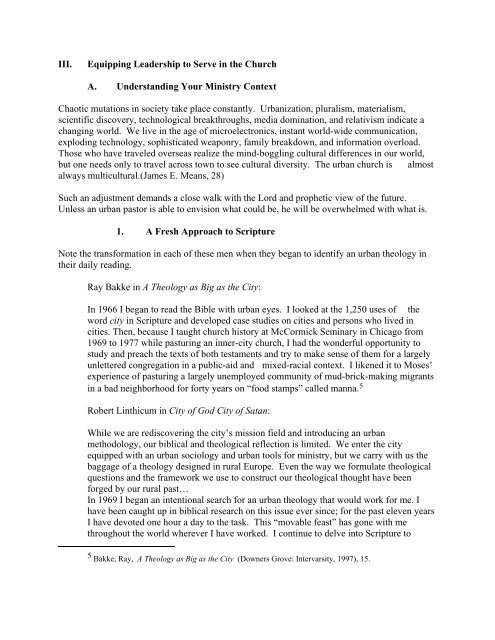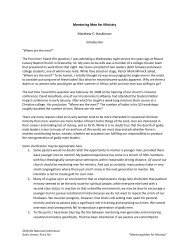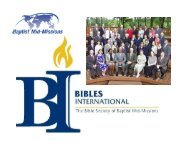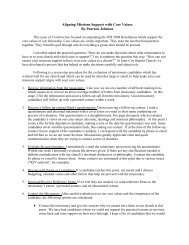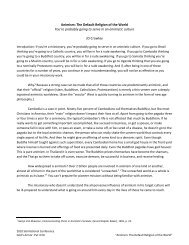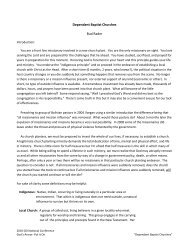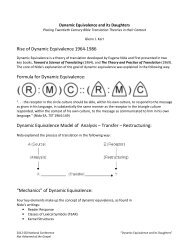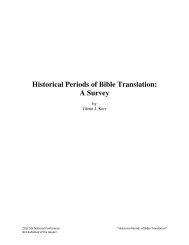Session 1: Why Urban Ministry - Missions Mandate
Session 1: Why Urban Ministry - Missions Mandate
Session 1: Why Urban Ministry - Missions Mandate
You also want an ePaper? Increase the reach of your titles
YUMPU automatically turns print PDFs into web optimized ePapers that Google loves.
III. Equipping Leadership to Serve in the Church<br />
A. Understanding Your <strong>Ministry</strong> Context<br />
Chaotic mutations in society take place constantly. <strong>Urban</strong>ization, pluralism, materialism,<br />
scientific discovery, technological breakthroughs, media domination, and relativism indicate a<br />
changing world. We live in the age of microelectronics, instant world-wide communication,<br />
exploding technology, sophisticated weaponry, family breakdown, and information overload.<br />
Those who have traveled overseas realize the mind-boggling cultural differences in our world,<br />
but one needs only to travel across town to see cultural diversity. The urban church is almost<br />
always multicultural.(James E. Means, 28)<br />
Such an adjustment demands a close walk with the Lord and prophetic view of the future.<br />
Unless an urban pastor is able to envision what could be, he will be overwhelmed with what is.<br />
1. A Fresh Approach to Scripture<br />
Note the transformation in each of these men when they began to identify an urban theology in<br />
their daily reading.<br />
Ray Bakke in A Theology as Big as the City:<br />
In 1966 I began to read the Bible with urban eyes. I looked at the 1,250 uses of the<br />
word city in Scripture and developed case studies on cities and persons who lived in<br />
cities. Then, because I taught church history at McCormick Seminary in Chicago from<br />
1969 to 1977 while pasturing an inner-city church, I had the wonderful opportunity to<br />
study and preach the texts of both testaments and try to make sense of them for a largely<br />
unlettered congregation in a public-aid and mixed-racial context. I likened it to Moses’<br />
experience of pasturing a largely unemployed community of mud-brick-making migrants<br />
in a bad neighborhood for forty years on “food stamps” called manna. 5<br />
Robert Linthicum in City of God City of Satan:<br />
While we are rediscovering the city’s mission field and introducing an urban<br />
methodology, our biblical and theological reflection is limited. We enter the city<br />
equipped with an urban sociology and urban tools for ministry, but we carry with us the<br />
baggage of a theology designed in rural Europe. Even the way we formulate theological<br />
questions and the framework we use to construct our theological thought have been<br />
forged by our rural past…<br />
In 1969 I began an intentional search for an urban theology that would work for me. I<br />
have been caught up in biblical research on this issue ever since; for the past eleven years<br />
I have devoted one hour a day to the task. This “movable feast” has gone with me<br />
throughout the world wherever I have worked. I continue to delve into Scripture to<br />
5 Bakke, Ray, A Theology as Big as the City (Downers Grove: Intervarsity, 1997), 15.


